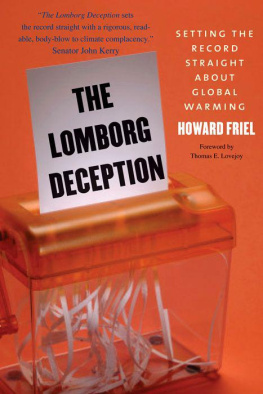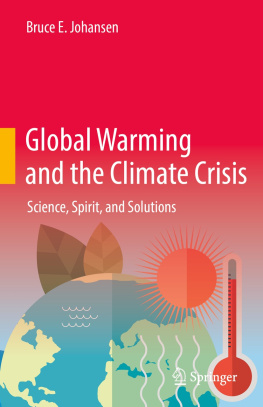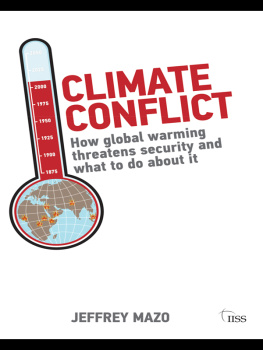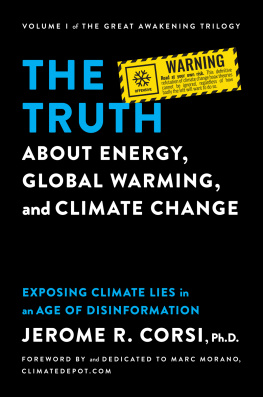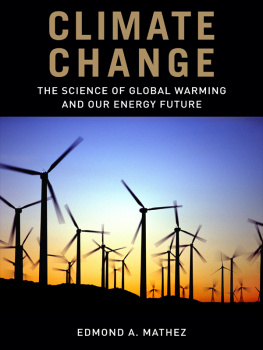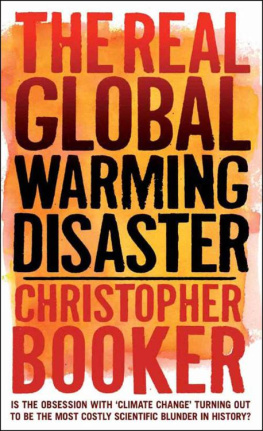Praise for The Lomborg Deception
The Lomborg Deception , by Howard Friel, presents a troubling history of how a cleverly contrived claim that hundreds of scientists and dozens of scientific institutions have gotten climate and environmental science badly wrong over several decades is way off base, unlike the well-established conclusions hammered out over decades in peer-reviewed assessments. Bjorn Lomborgs claims that environmental scientists mislead society into wasting money on nonexistent problems is based on hundreds of citations taken out of context, dozens of straw men, selective inattention to inconvenient science, and the illusion of careful scholarship. Friel documents this deception brilliantly.
The Lomborg Deception should serve as a sober warning to beware of the myth busters and truth tellers like Lomborg, who most likely are the ones misrepresenting complex environmental science problems and, of course, profiting from the naive acceptance of seemingly careful claims that many wed to status quo policies so welcome. Stephen H. Schneider, Melvin and Joan Lane Professor for Interdisciplinary Environmental Studies and Senior Fellow, Woods Institute for the Environment, Stanford University
For those interested in the future of polar bears and Arctic sea ice, The Lomborg Deception , by Howard Friel, clearly documents the inaccurate and utterly inadequate arguments that Bjrn Lomborg uses to erroneously suggest climate warming will have little negative effect on this bellwether mammal. The far greater tragedy is that misleading presentations such as those proffered by Lomborg may help to foster uncertainty in the public at large about the severity of the human causes of climate warming, and thus further delay the urgent need for the entire world to respond quickly to reduce our collective output of greenhouse gases.
Ian Stirling, Fellow of the Royal Society of Canada, Research Scientist Emeritus, Environment
For nearly a decade, Bjrn Lomborgs climate-science rejectionism has helped block serious political action on greenhouse emissions. We are now nearly out of time to act to prevent the worst impacts of global warming. I hope that Howard Friels remarkably valuable and highly enlightening analysis in The Lomborg Deception will finally clear Lomborg and his supporters out of the path to such action.
James Gustave Speth, author of Red Sky at Morning: America and the Crisis of the Global Environment and The Bridge at the End of the World: Capitalism, the Environment, and the Crossing from Crisis to Sustainability
Facts, John Adams once said, are stubborn things. Unfortunately for Bjrn Lomborg, this book is full of them. The Lomborg Deception sets the record straight with a rigorous, readable body blow to climate complacency.
Senator John Kerry
Scientific discourse, born of the honest skepticism and unquestioned integrity of its participants, has been the lifeblood of scientific inquiry for centuries. False scientific debate over well-established results, born of the repeated interventions by voices whose skepticism is not honestly articulated, can be extremely dangerous both to the conduct of scientific research and to the well-being of a planet that depends on responsible stewardship for its very existence. Since this danger is particularly acute for issues like climate change that have been politicized beyond reason, one can only hope that Howard Friels careful documentation of persistent and pervasive misrepresentation will diminish significantly the credibility and thus the influence of Lomborgs assertions.
Gary W. Yohe, Woodhouse/Sysco Professor of Economics, Wesleyan University
The Lomborg Deception
HOWARD FRIEL
The Lomborg Deception
Setting the Record Straight
About Global Warming
FOREWORD BY THOMAS E. LOVEJOY
Yale
UNIVERSITY
PRESS
NEW HAVEN AND LONDON
Published with assistance from the Louis Stern
Memorial Fund.
Copyright 2010 by Howard Friel.
All rights reserved. This book may not be reproduced, in whole or in part, including illustrations, in any form (beyond that copying permitted by Sections 107 and 108 of the U.S. Copyright Law and except by reviewers for the public press), without written permission from the publishers.
Set in Janson type by Keystone Typesetting, Inc.
Printed in the United States of America.
Library of Congress Cataloging-in-Publication Data
Friel, Howard, 1955
-The Lomborg deception : setting the record straight about
global warming / Howard Friel.
p. cm.
Includes bibliographical references and index.
ISBN 978-0-300-16103-8 (hardcover : alk. paper)
1. Fraud in science. 2. Global warming. 3. Climatic
changes. 4. Lomborg, Bjrn, 1965. I. Title.
Q 175.37 .F 75 2010
500 dc2 2
2009037999
A catalogue record for this book is available from the
British Library.
This paper meets the requirements of ANSI/NISO Z39.48-1992 (Permanence of Paper).
10 9 8 7 6 5 4 3 2 1
CONTENTS
by Thomas E. Lovejoy
FOREWORD
THOMAS E. LOVE JOY
Ever a graduate student, I habitually turn to the back of a scholarly article or book to read the footnote or see what the citation actually is. Scholars do this not from some boring pedantic thoroughness, but rather out of true intellectual curiosity. As usual, I did that when reviewing the Skeptical Environmentalist for Scientific American . I remember my frustration at inadequate citations, so much so that I characterized them in the review as a mirage in the desert. I reviewed only the forest and biodiversity aspects of the book as that was my particular expertise and assignment, and three others from different fields reviewed other aspects of the book. Little did I know that the entire volume was similarly flimsy.
I do recall at the time that fellow conservation biologists attending a Lomborg talk would correct his science, only to find the same assertions made in subsequent talks as if the corrections had never occurred. That left me disinclined to engage with Lomborg. Science and public understanding do not advance on the basis of assertions as opposed to conversations and discussion.
I do remember being puzzled at the time that Cambridge University Press had published the book, for surely a scholarly press would have picked up the problem in manuscript review. Later I came to understand that the review had been on the social science side of the Press even though the volume was in the Environmental Science list. So clearly there was a flaw in the reviewing process since it was an interdisciplinary subject. I still find it surprising the reviewer didnt question some of the assertions even if not an expert on environment from a scientific perspective.
Bjrn Lomborg was trained as an economist. Economics, of course, while contributing to environmental solutions in the case of some market based solutions like the sulfur markets in the United States, has some inherent difficulties in dealing with long term and big scale problems: witness the debate over discount rates between Sir Nicholas Stern and economists such as William Nordhaus. (The Stern Report excluded the use of discount rates because of the enormity and complicated time scales of climate change and its impacts.) The difference with the Lomborg approach is that Nordhaus is very rigorous: while using discount rates, he is impeccable about the understanding and use of physical and biological science.
In this work, Howard Friel does what nobody has done before, namely to systematically examine Lomborgs work citation by citation. This is no small task, so it is not surprising that this has not been undertaken until now.

